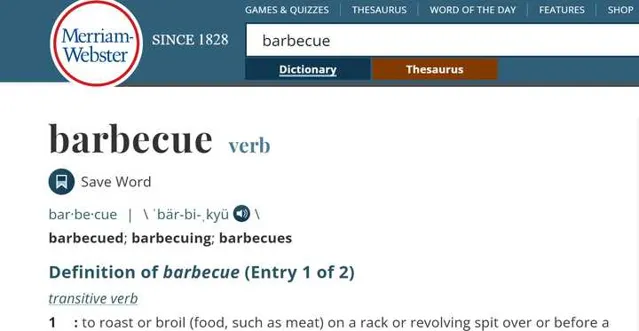好有意思的問題哈哈,從轉譯與跨文化的角度來說,這是外來語在譯入語文化中的意義衍生。
根據 Merriam-Webster Dictionary 【韋氏大詞典】 , barbecue有以下三種定義:
1: to roast or broil (food, such as meat) on a rack or revolving spit over or before a source of heat (such as hot coals or a gas flame)
在架子上或在熱源(如熱煤或煤氣火焰)上旋轉烤肉架上烤或烤(食物,如肉)。
例如:
barbecuing chicken for dinner
2 : to prepare (food, such as beef, pork, or chicken) by seasoning (as with a marinade, a barbecue sauce, or a rub) and cooking usually slowly and with exposure to low heat and to smoke
用調味料(如腌料、燒烤醬或揉搓)來準備(食物,如牛肉、豬肉或雞肉),通常用小火熏制緩慢烹飪。
例如:
Barbecuing brisket begins late Thursday night so they can start serving at noon Friday.
3 informal : to subject (someone) to harsh criticism or ridicule
非正式用法:使(某人)受到嚴厲的批評或嘲笑。
例如:
Republicans now talk of winning 15 to 20 new seats in November, a prospect that has the faithful and the financiers wanting to barbecue Clinton for at least a few more weeks.

前兩個義項在中文語境的認知傳播遠遠比最後一個要廣泛的多,本來所指的是一種「燒烤」活動。而其「烤炙」的含義,頗有一種「受到折磨」或「大難臨頭」的意味,在中文互聯網語境中,被用來借代一種「令人尷尬的完蛋了的死亡場景hh」。
在傳播的過程中,其原來的形式也發生了變化,從barbecue到BBQ到芭比Q,詞匯的形式和內涵已經完全發生了轉移,儼然是一種跨文化創新的標準範式了hh(just kidding!)。











